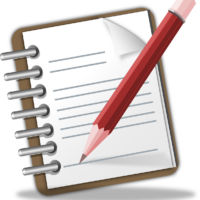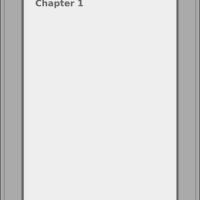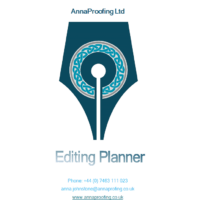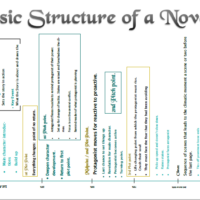
Weekly Round-Up
Sorry for the hiatus in my content, I have been extremely busy with editing and it has not allowed time for creating content, and I spent the first two weeks of April visiting family in Zimbabwe. Don’t worry: I won’t bore you with my holiday photos.
This post has something for everyone. There are links to some great advice as well as some interesting news from PRH who plan to reward readers for their loyalty. I’ve also included some great book suggestions.
Articles
Penguin Random House in the US has launched a ‘Reader Rewards Loyalty Program’, a free promotional initiative that lets readers earn one free book for every 12 PRH titles they purchase.
Recommendations
5 Secrets of Story Structure: How to Write a Novel That Stands Out (Helping Writers Become Authors Book 6)
by K. M. Weiland
Want to take your writing to the next level? Discover the “secrets” of story structure other authors are overlooking!
If you’ve read all the books on story structure and concluded there has to be more to it than just three acts and a couple of plot points, then you’re absolutely right! It’s time to notch up your writing education from “basic” to “black belt.” Internationally-published author K.M. Weiland shares five “secret” techniques of advanced story structure.
In the multi-award-winning Structuring Your Novel, Weiland showed writers how to use a strong three-act structure to build a story with the greatest possible impact on readers. Now it’s time to take that knowledge to the next level.
In this supplemental book, you’ll learn:
-
- Why the Inciting Event isn’t what you’ve always thought it is
-
- What your Key Event is and how to stop putting it in the wrong scene
-
- How to identify your Pinch Points—and why they can make the middle of your book easier to write
-
- How to create the perfect Moment of Truth to move your protagonist from reaction to action
-
- How to ace your story’s Climactic Moment every single time
And much more!
By the time you’ve finished this quick read, you’ll know more about story structure than the vast majority of aspiring authors will ever know—and you’ll be ready to write an amazing novel that stands above the crowd.
Outline Your Novel
by K. M. Weiland
Can Outlining Help You Write a Better Story? Writers often look upon outlines with fear and trembling. But when properly understood and correctly wielded, the outline is one of the most powerful weapons in a writer’s arsenal.Outlining Your Novel: Map Your Way to Success will:•Help you choose the right type of outline for you•Guide you in brainstorming plot ideas•Aid you in discovering your characters•Show you how to structure your scenes•Explain how to format your finished outline•Instruct you in how to use your outline•Reveal the benefits•Dispel the misconceptions include exclusive interviews with ten respected authors, answering important questions about outlining. Outlining can organize your writing and help you take your stories to the next level. Find out how!
Edit Ready: How to make your book as good as you can, before you send it to an editor.
By Harry Dewulf
Edit Ready is an author’s reference book for use during story development, writing and both self editing and when you get your manuscript back from your editor.
Put like that, it sounds rather dry, but reference books always do.
Actually, though, although it has an exhaustive contents page, three different indices and 6 appendices, this is not a dry reference book. In fact, the ink is never dry for long.
Because Edit Ready is compiled from notes, guidance, teaching and conversation with authors, while working with them to make their manuscripts as good as they can, but also, to help them to become better authors.
Every time I edit a book, I look at the topics that arise, and try to find a way of generalizing the help and advice I give to its author, so that I can pass the advice on to all authors.
So really, Edit Ready is an attempt to avoid editing, by ensuring you know in advance about anything and everything that your editor has to deal with. The idea is that this will make you a better writer.
Speaker for the Dead
by Orson Scott Card
A FALLEN HERO – HAUNTED BY HIS PAST, BUT CAN HE CHANGE THE FUTURE?
Ender Wiggin was once considered a great military leader, a saviour for mankind.
But now history judges his destruction of an alien race as monstrous rather than heroic.
In the aftermath of the war, Ender disappeared, and a powerful voice arose: The Speaker for the Dead, who told the true story behind the battle with the aliens. Now, years later, a second alien race has been discovered. But again they are strange and frightening – and again, humans are dying.
It is only the Speaker for the Dead, secretly Ender Wiggin, who has the courage to confront the mystery . . . and the truth.
The Hugo and Nebula award-winning sequel to the classic science fiction novel Ender’s Game
Broken Empire
By E. A. Copen
In an empire where political power is everything, Captain Timothy Val wants one thing: to serve his empire with honor and distinction. But after a mission to quell a revolt goes terribly wrong, Timothy is branded a traitor and barely escapes with his life. His only hope of regaining his lost honor and clearing his family name rests in the hands of a senator planning to use him as the face of a revolution.
With an intergalactic war looming and civil unrest spreading through the empire, Timothy must tread carefully. Assassins wait around every corner, and his new allies have made him powerful enemies, enemies that may not be entirely human.















